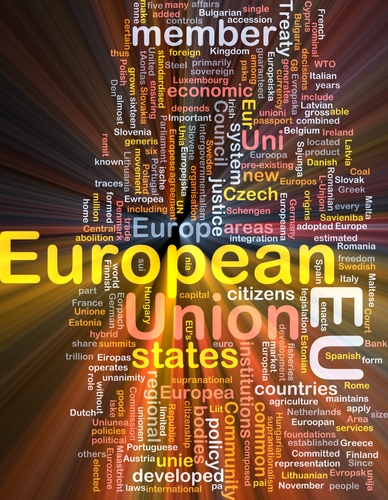| 6 language versions available
Europäisches Jahr der Bürgerinnen und Bürger (2013) 2013 Año Europeo de los Ciudadanos Année européenne des citoyens 2013 |
The Commission has proposed to make 2013 the Year of Citizens in order to raise awareness of their rights and responsibilities. Particular attention will be devoted to the right to move and reside freely in another Member State and to non-discrimination. The European Union would organise, co-finance or support information campaigns at different levels.
Background

Under the EU Treaties, the Charter of Fundamental Rights and the Stockholm Programme, European citizens are placed at the core of Union policy. However, according to the European Commission, EU citizens are often prevented from enjoying their rights because of a lack of awareness.
In order to address this situation and in view of the 2014 European Parliament elections, the Commission’s 2010 Citizenship Report “Dismantling the obstacles to EU citizens’ rights” proposed to make 2013 the “European year of citizens“, with the organisation of a series of targeted events. These would focus on citizenship and EU citizen-related policies at national and local levels. The European Parliament had in fact called for this initiative in its 2010 resolution on fundamental rights in the EU (Rapporteur Kinga Gál, EPP, Hungary).
On 29 August 2011, the Commission presented its proposal for a decision on the European Year of Citizens (2013). This initiative should complement other specific and general citizen-oriented measures currently pending before the EP and the Council such as the multiannual Rights and Citizenship programme for 2014-2020.
A multi-level strategy
The 2013 Year of Citizens proposal has been the subject of trialogue negotiations between representatives of the EP’s Committee on Civil Liberties, Justice and Home Affairs (LIBE), the Council Presidency and the Commission. On 3 September, the report incorporating the text agreed with the Council was adopted by LIBE, by 45 votes for, two votes against and two abstentions. It empowers the European Commission to support Europe-wide and national initiatives aimed at:
a) improving EU citizens’ awareness of their rights to move and reside within the EU area, their right not to be discriminated against and to participate actively in the political life of the Member State in which they reside;
b) informing Union citizens how they can benefit from European fundamental rights, policies and programmes;
c) stimulating a debate about active public and democratic participation in civic fora on EU policies and for the forthcoming EP elections.
|
The EU would support the 2013 Year of Citizens on a number of different levels. Initiatives directly financed by the EU through the direct purchase of goods and services under existing framework contracts; Initiatives co-financed by the EU such as the ones already foreseen by the 2007-2013 Europe for Citizens Programme or the 2007-2013 specific programme “Fundamental Rights and Citizenship”; Initiatives “sponsored” by the EU using the EU label for initiatives carried out by public or private organisations during 2013. |
The overall objective should be to strengthen social cohesion, mutual respect and the sense of a common European identity among Union citizens, based on the core values of the EU.
These initiatives would be organised at Union, national, regional or local levels. The Commission will cooperate closely with Member States and Parliament, as well as with local and regional authorities and civil society organisations active at those and EU levels. The cost to the EU budget is estimated at around €1 million.








[…] Année européenne des citoyens sera officiellement close à Vilnius les 12 et 13 décembre prochains. Cette année a permis de […]
[…] and Friday, we moved from Strasbourg to Vilnius where the European Year of Citizens held its closing ceremony. You can read an overview here on what European citizenship means and […]